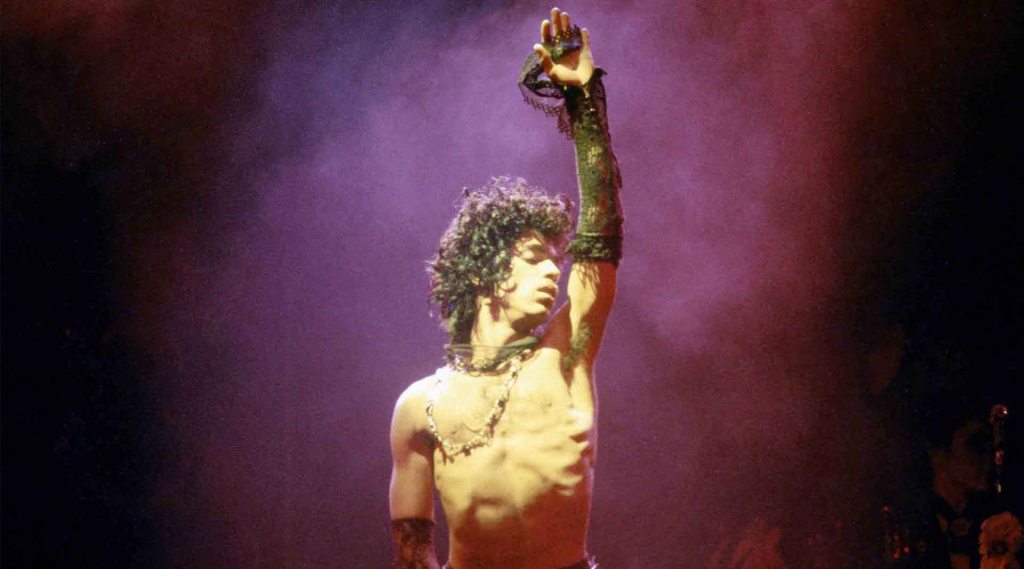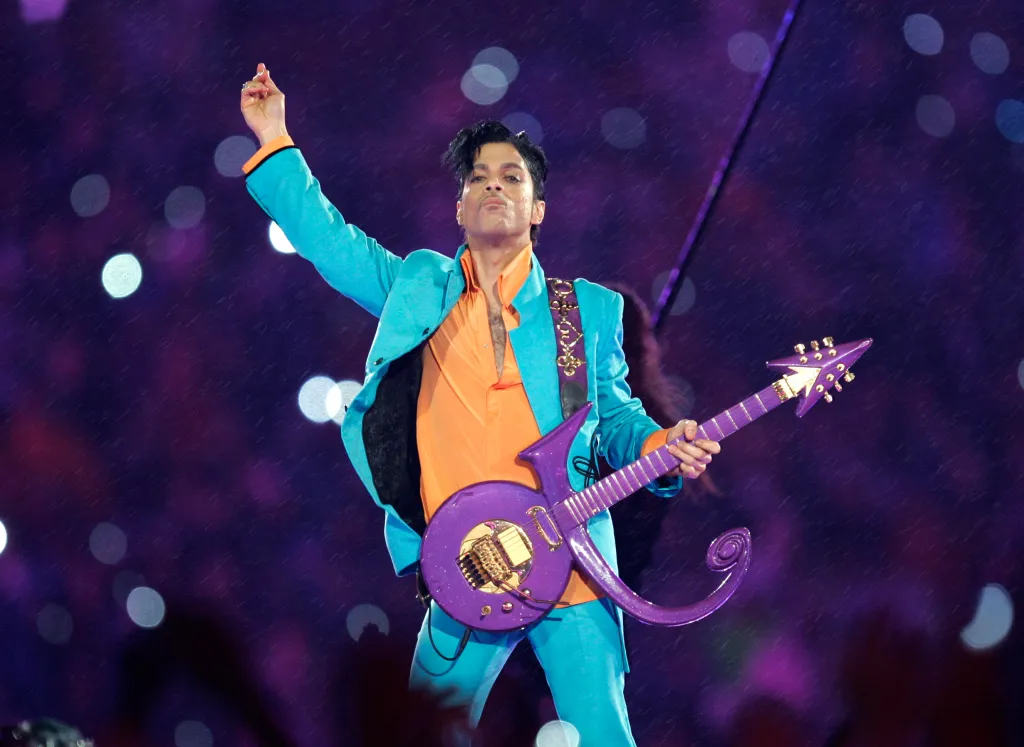Prince, born Prince Rogers Nelson on June 7, 1958, in Minneapolis, Minnesota, left an indelible mark on the music industry that transcended genres and generations. His enigmatic persona, unmatched musical prowess, and flamboyant stage presence made him an icon in the world of entertainment. This article delves into the life of Prince, exploring his humble beginnings, meteoric rise to fame, groundbreaking contributions to music, and his enduring legacy.
Childhood and Early Life
Prince’s musical journey began in a modest household. His parents, John L. Nelson and Mattie Della Shaw, were both jazz musicians, laying the foundation for his early exposure to the world of music. At the tender age of seven, Prince wrote his first song, showcasing a prodigious talent that would later captivate the world.
Rise to Fame and Early Appearances
As a teenager, Prince honed his craft by playing various instruments and immersing himself in different musical genres. His breakthrough came in the late 1970s when he formed the band “Prince and the Revolution” and started performing at local Minneapolis venues. His eclectic style, combining elements of funk, rock, and R&B, caught the attention of record labels and audiences alike.
First Album: “For You”
In 1978, Prince released his debut album, “For You,” a remarkable feat considering he played all 27 instruments on the record. The album showcased his multi-instrumental prowess, innovative songwriting, and a glimpse of the boundary-pushing creativity that would define his career.
First Record Deal
Prince’s first record deal marked a pivotal moment in his career, propelling him from the local Minneapolis music scene to international stardom. His prodigious talent had already gained attention, leading to a bidding war among record labels eager to sign the emerging musical genius. In 1977, Prince, at the age of 19, inked a historic deal with Warner Bros. Records.
Warner Bros. Records recognized Prince’s unique blend of funk, rock, and R&B, and they were willing to offer him artistic freedom, a rarity in the music industry. The deal allowed Prince to have unprecedented control over his music, from composition to production. This artistic autonomy was a crucial factor that distinguished his contract from those of many other artists at the time.

The signing with Warner Bros. not only marked the beginning of a fruitful partnership but also set the stage for the release of Prince’s debut album, “For You,” in 1978. The album was a tour de force, showcasing Prince’s ability to play all 27 instruments featured on the record. Warner Bros. demonstrated confidence in this untested young artist, supporting his vision and taking a calculated risk that would soon prove to be one of the best decisions in the history of the music industry.
The collaboration with Warner Bros. allowed Prince to experiment and push the boundaries of traditional musical genres. The label recognized his potential to be a trailblazer, and they supported his journey to explore uncharted musical territories. This alignment of artistic vision between the artist and the record label laid the foundation for the groundbreaking albums that would follow.
Throughout the late 1970s and early 1980s, Prince released a series of critically acclaimed albums under Warner Bros., including “Prince” (1979), “Dirty Mind” (1980), “Controversy” (1981), and the breakthrough masterpiece, “1999” (1982). These albums showcased Prince’s evolution as an artist, as he fearlessly blended genres, explored taboo subjects, and exhibited an uncanny ability to produce infectious, chart-topping hits.
The synergy between Prince and Warner Bros. reached its zenith with the release of “Purple Rain” in 1984. The album, accompanied by a film of the same name, catapulted Prince to international superstardom. The success of “Purple Rain” solidified the partnership between the artist and the label, proving that their trust in Prince’s creative instincts was well-founded.
However, this harmonious relationship would later face challenges. In the early 1990s, Prince entered into a highly publicized feud with Warner Bros. over issues of creative control and ownership of his master recordings. In a bold and defiant move, he changed his name to an unpronounceable symbol as a symbol of protest and a declaration of independence. During this period, he released albums like “The Gold Experience” and “Chaos and Disorder” as “The Artist Formerly Known as Prince.”
The dispute with Warner Bros. eventually led Prince to seek more control over his music and career. In the late 1990s, he successfully negotiated the return of his master recordings, marking the end of his longstanding association with the label. Despite the tensions and legal battles, Prince’s time with Warner Bros. remains a pivotal chapter in his career, showcasing the potential for artists to assert creative control and shape their own destinies within the music industry.

In retrospect, Prince’s first record deal with Warner Bros. was not only a professional collaboration but also a statement about artistic integrity and the importance of creative freedom in the music industry. It allowed Prince to redefine the boundaries of popular music, leaving an indelible mark on the industry and inspiring future generations of artists to prioritize their artistic vision and maintain control over their work. The groundbreaking nature of this partnership underscores the lasting impact of Prince’s legacy as a musical innovator and a pioneer of artistic independence.
The Name Change: Symbolism and Rebellion
In 1993, Prince made the audacious decision to change his name to an unpronounceable symbol, often referred to as “The Love Symbol.” This move was both an act of rebellion against his record label and a statement of independence. The symbol was a fusion of the male and female symbols, emphasizing the androgynous nature of his music and persona.
Top 7 Most Notable Performances

- Super Bowl XLI Halftime Show (2007): Prince’s halftime performance during Super Bowl XLI is widely regarded as one of the greatest in the event’s history. Performing in the pouring rain, he delivered an electrifying set that included iconic renditions of “Purple Rain” and “Let’s Go Crazy.”
- Rock and Roll Hall of Fame Induction (2004): Prince’s induction into the Rock and Roll Hall of Fame was a testament to his influence on the industry. In a memorable performance, he joined Tom Petty, Jeff Lynne, Steve Winwood, and others for a rendition of “While My Guitar Gently Weeps,” stealing the show with a guitar solo that left an indelible mark.
- Purple Rain Tour (1984-1985): The Purple Rain Tour accompanied the release of Prince’s critically acclaimed album and film of the same name. The tour showcased his dynamic stage presence, musical versatility, and a fusion of rock and funk that solidified his status as a global superstar.
- MTV Video Music Awards (1984): Prince’s iconic performance at the MTV Video Music Awards featured a medley of hits, including “Let’s Go Crazy” and “Purple Rain.” The audience witnessed his ability to seamlessly blend musical genres and theatricality, setting a new standard for live performances.
- Sign o’ the Times Tour (1987): This tour marked another high point in Prince’s live performances. Known for its innovation and elaborate stage design, the Sign o’ the Times Tour showcased his evolution as an artist and performer.
- Montreux Jazz Festival (2009): Prince’s performance at the Montreux Jazz Festival demonstrated his ability to connect with diverse audiences. The intimate setting allowed for a more stripped-down performance, highlighting the raw talent that defined his career.
- Wembley Stadium (1990): The Nude Tour, which included a memorable performance at Wembley Stadium, showcased Prince’s ability to command large audiences with his charismatic stage presence and unparalleled musicianship.
Most Famous Songs
Prince’s discography is a treasure trove of hits, but some songs have become synonymous with his legacy:
- “Purple Rain” (1984): The title track from his seminal album, “Purple Rain,” became an anthem of the 1980s and remains one of Prince’s most iconic songs.
- “When Doves Cry” (1984): This track, with its innovative production and introspective lyrics, topped charts worldwide, showcasing Prince’s ability to push the boundaries of popular music.
- “Kiss” (1986): A funky, upbeat track that became an international hit, “Kiss” exemplifies Prince’s flirtation with different musical styles and his undeniable charisma.
- “Little Red Corvette” (1983): Combining rock and funk elements, this song from the “1999” album became a defining moment in Prince’s career, showcasing his genre-blurring approach.
- “Raspberry Beret” (1985): A pop gem from the “Around the World in a Day” album, “Raspberry Beret” demonstrated Prince’s versatility in crafting catchy and accessible tunes.
- “1999” (1982): The titular track from the album “1999” not only marked Prince’s ascent to mainstream success but also became an anthem for the impending turn of the millennium.
- “Sign o’ the Times” (1987): The title track of the album “Sign o’ the Times” is a socially conscious and musically intricate masterpiece that remains a testament to Prince’s artistic depth.
Most Famous Collaborations
Prince’s collaborations spanned various genres and showcased his ability to collaborate with diverse artists. Some of his most notable collaborations include:
- “When You Were Mine” with Cyndi Lauper (1984): Prince co-wrote this track with Cyndi Lauper, highlighting his versatility as a songwriter and collaborator.
- “Love Song” with Madonna (1989): The collaboration between two pop icons, “Love Song” from Madonna’s “Like a Prayer” album, showcased their musical chemistry and mutual respect.
- “Manic Monday” with The Bangles (1986): Originally written by Prince under the pseudonym “Christopher,” “Manic Monday” became a hit for The Bangles, solidifying Prince’s influence beyond his solo work.
- “Nothing Compares 2 U” with Sinead O’Connor (1990): While Prince’s original version gained recognition, Sinead O’Connor’s rendition of “Nothing Compares 2 U” became a global sensation, further emphasizing his impact on other artists.
- “We Are the World” (1985): Prince joined an ensemble of legendary artists for this charity single, showcasing his commitment to social causes and his willingness to collaborate for a greater purpose.
- “Creep” with Radiohead (2008): Prince’s cover of Radiohead’s “Creep” at Coachella demonstrated his ability to reinvent and reinterpret songs, surprising and delighting audiences.
- “I Feel for You” with Chaka Khan (1984): Prince wrote and originally performed “I Feel for You,” but it was Chaka Khan’s cover that became a massive hit, earning them both critical acclaim.
Awards and Accolades
Prince’s unparalleled contributions to music earned him numerous awards and accolades, including:
- Grammy Awards: Prince won a total of seven Grammy Awards, including Album of the Year for “Purple Rain” in 1985.
- Academy Award (Oscar): The song “Purple Rain” won the Academy Award for Best Original Song Score in 1985.
- Golden Globe Awards: Prince received a Golden Globe Award for Best Original Song for “The Song of the Heart” from the animated film “Happy Feet” in 2007.
- Rock and Roll Hall of Fame: Prince was inducted into the Rock and Roll Hall of Fame in 2004, solidifying his status as one of the greatest musicians of all time.

Cultural Impact
Prince’s influence extended beyond the realm of music, shaping the cultural landscape in profound ways. His unapologetic approach to self-expression, gender fluidity, and artistic experimentation challenged societal norms, inspiring a generation of artists and fans alike. The Purple One’s impact on fashion, with his bold and eclectic style, further cemented his role as a trendsetter.
Sex Icon Status
Prince’s charismatic stage presence, sensual lyrics, and androgynous image contributed to his status as a sex symbol. His ability to fuse eroticism with musical genius was groundbreaking, challenging traditional notions of masculinity and femininity. Songs like “Darling Nikki” and “Cream” showcased Prince’s unabashed exploration of sensuality, earning him a dedicated fanbase and a lasting legacy as a sex icon.
Later Years
In the 1990s, Prince faced challenges with his record label and changed his name to the unpronounceable symbol as a symbolic act of defiance. During this time, he continued to release albums at a prolific pace, experimenting with different sounds and styles. The 2000s saw a resurgence in his career, marked by memorable performances and critical acclaim for his live shows.
Death and Legacy
Tragically, Prince’s life came to an untimely end on April 21, 2016, when he was found dead at his Paisley Park estate in Minnesota. The world mourned the loss of a musical genius whose influence transcended genres and generations. The cause of death was later determined to be an accidental overdose of the opioid fentanyl.
Prince’s legacy endures through his vast catalog of music, the impact he had on artists across genres, and the cultural shifts he inspired. His ability to push boundaries, challenge conventions, and consistently deliver innovative and timeless music ensures that Prince’s influence will be felt for generations to come.
Prince’s life was a testament to the transformative power of music and the boundless creativity that can emerge from a single individual. From his humble beginnings in Minneapolis to global superstardom, Prince redefined the landscape of popular music, leaving an indelible mark on the industry. His legacy as a musician, performer, and cultural icon remains unparalleled, and his impact continues to resonate with audiences around the world. Prince, the Purple One, will forever be remembered as a musical virtuoso who defied categorization and elevated the artistry of popular music to unprecedented heights.





